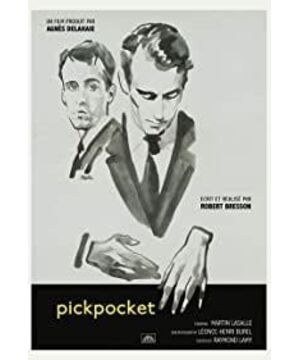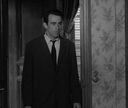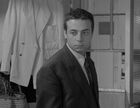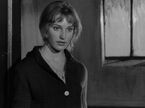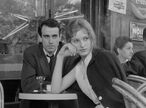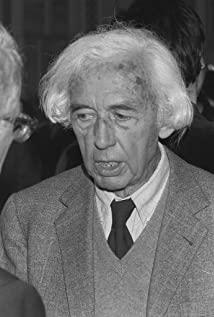The soundtrack in the film is very particular. At first I thought it was Bach’s music, and there was even an illusion because it came from "Matthew Passion". But after reading some introductions, I realized that Lu Li's music was used in the film. But the music style is the same. Luly was a French composer almost contemporary with Bach. In the film, whenever the protagonist Mitch is lost, there will be a burst of music. At this time, the music is often heavy, but there is a faint trace of gentleness in it, humanity is revealed in the divine nature, and the existence of God can be felt from the human nature. This also seems to show that in the eyes of the film's author Bresson, Mitch has never been abandoned by God. Of course, God is always caring for us, just like Mitch, and so are the outsiders described by Camus.
In the last scene, when Mitch finally expressed his feelings to Jeanna, the music suddenly became bright and cheerful. It was as if a sacred light suddenly shot down in the hazy sky. This is exactly how God cares for Mitch, and it is also Bresson's care for people.
Here are some other things:
Jeanna is so beautiful, in my opinion a perfect beauty, just my favorite type. It seems that I am jealous of Mitch, and even want to be a pickpocket by myself the next day, to see if I can meet such a beautiful woman.
Later I learned that the actors in this film (including most of Bresson’s films) are not actors. And Bresson asked them not to show any feelings.
There is also an interview with film critic + director Shrade on the disc I watched. He said that his "Taxi Driver" was inspired by "Pickpocket". During the period, he also talked about some technical issues in movies. For example, in general movies, the 8 and 9 frames are cut before the end of the action. For example, when a person is going out and he opens the door and walks out, cut it out at this time. , So as to produce a sense of rhythm. But Bresson had to go the other way, not observing this law. And in many places, Bresson used "double expression" or even "triple expression". Shrade said, all of this is for the arrival of the last scene, for the final emotional explosion. Well, in this way, it fits Umberto Eco's exposition of the theory of "trembling time" in "Youth Novel Forest".
Although this is a black and white film shot in 1959, most of the characters have no expressions, but today, it is still a very good-looking movie. No wonder it is said that "The Pickpocket" (1959) filmed by Robert Bresson more than 40 years ago has been considered by the film critics to be the "most contemporary film"."
View more about Pickpocket reviews


